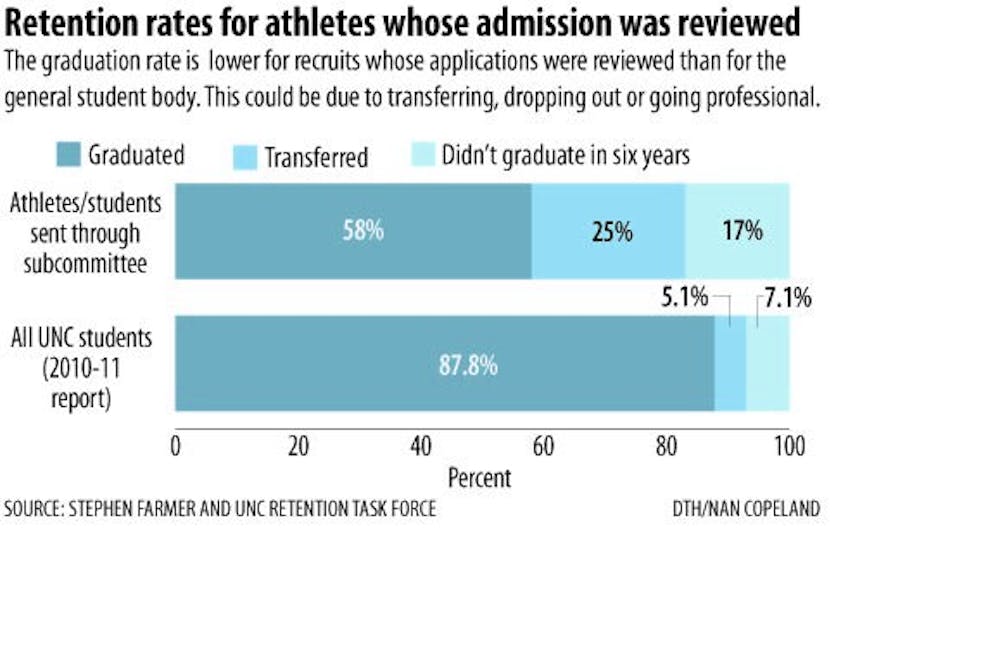Before UNC’s athletic recruits of 2013 sign with their teams, they must first be signed off on by the admissions office — and now there’s a new mathematical formula to predict their academic success.
Steve Farmer, vice provost for enrollment and undergraduate admissions, said the admissions office first implemented a formula in November that can predict the first-year GPA of a prospective student athlete based on the student’s high school GPA, SAT or ACT score and the athletic program he or she would join.
During the admissions process, if a recruit does not meet certain criteria, he or she must be reviewed by the admissions office’s subcommittee on special talent, which decides whether an exception should be made.
The guidelines that require review are: if the student has breached community standards for academic or personal behavior; if he or she doesn’t meet the minimum course or admissions requirements outlined by the UNC-system Board of Governors; or if he or she has a predicted freshman GPA below 2.3, a number determined by the new formula.
The special subcommittee reviews about 14 cases per year and rejects only one or two. This average has dropped since the late 1990s, when the group reviewed about 35 to 40 cases per year.
John Akin, a member of the subcommittee, said the reason for the decrease is better communication between the athletic department and admissions office.
“The coaches or people doing the recruiting get a very good idea of what our standards are, so often they don’t bring people who they don’t think will get in,” he said.
Throughout the last three years, 70 percent of students reviewed by the special subcommittee have been recruits for either football or basketball.
Layna Mosley, the group’s chairwoman, said admissions decided to create the formula to more reliably identify students who needed review.
“In the past, the (initial) committee would do a quick hearing to identify students at risk,” she said.
Mosley said the admissions office would look at things including standardized test scores and class rank. Before this year, the admissions office would review scores like those and decide whether or not to have a recruit reviewed by the special subcommittee. Now, if the formula predicts a GPA of less than 2.3, the recruit is automatically sent for review.



